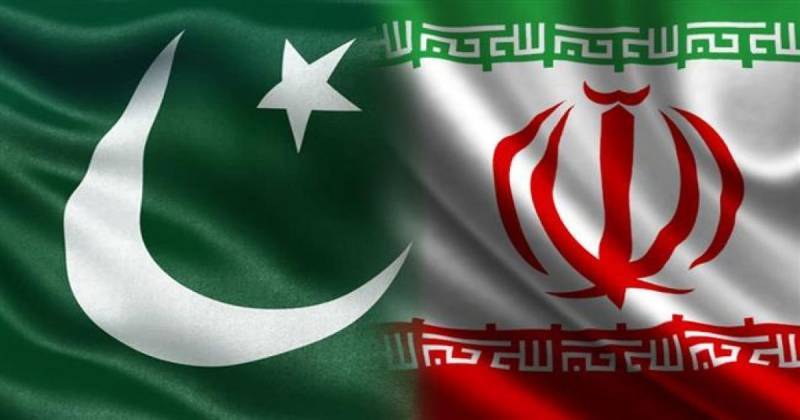
Iran’s Geopolitical Landscape: Implications for Pakistan By Dr Muhammad Shabbir
The geopolitical chessboard on which Iran stands may be characterised as a volatile tapestry of alliances, rivalries, and strategic interests. Its nuclear aspirations and support for regional groups in Middle Eastern countries have been the centre of debate lately. The United States of America (US) and Israel have used all instruments of coercion like sanctions, assassinations, and diplomatic isolation against Iran, but it stands resilient. Alongside those, they have allegedly made efforts for years to destabilise Iran and reshape its political trajectory. Pakistan, as the immediate neighbour, will have direct implications for any instability in Iran. Therefore, as tensions escalate and geopolitical manoeuvres unfold, Pakistan must delve into the intricate dynamics, understanding the motivations behind these efforts and their potential implications.
Shared civilisational experience, faith system, geographic proximity, common aspirations, and ultimate interests are the factors that help define the contours of the relationship between Iran and Pakistan. However, the trajectory of US-Iran relations has been marred by discord since the 1979 Islamic Revolution, marked by seminal events such as the hostage crisis, the Iran-Iraq war, and Iran’s nuclear programme. Conversely, Israel’s perception of Iran as aregional adversary stems from the latter’s backing of militant factions like Hezbollah and its purported pursuit of nuclear capabilities, exacerbating bilateral animosity between the two nations.
Thus, the US and Israel’s motivations to contain Iran often translate into policies aimed at destabilising the Iranian regime. They believe regime change could curb Iran’s influence and limit its ability to support these groups. Notably, the desired outcome might not be a pro-Western government but rather a regime that is not actively antagonistic towards the US and its allies.
On the other hand, the Iranian regime is under pressure due to several international and domestic factors. These include the US withdrawal from the Joint Comprehensive Plan of Action (JCPOA) and subsequent economic sanctions, the assassination of Iranian scientists and generals in recent years, and mounting economic difficulties at the domestic level. Moreover, the resurgence of conflict in Gaza has galvanised armed groups across the region, prompting displays of solidarity with Palestine. Armed factions in Yemen, Lebanon, Syria, and Iraq have escalated tensions through various means, including attacks on Israeli and US interests. Iran’s backing of armed groups in the region underscores its role as a vanguard of resistance against Israel in the Middle East and the broader Islamic world.
For Iran, two primary scenarios emerge: a period of extreme political instability or a regime change, which would bring in a non-anti-US/West regime.
The first scenario has graver consequences for Pakistan and the region. Imagine a situation where an already volatile region with Pakistan and Afghanistan grappling with their issues is further destabilised by an imploding Iran. This would create a security vacuum with far-reaching repercussions. With Iran out of the picture, the US would have more room to manoeuvre regionally, potentially undermining Chinese interests. Notably, India, with its existing ties to Iran (tacitly supported by the US), could emerge as a regional player advancing US interests. It also raises concerns about a potential “three-front” scenario for Pakistan – an unstable Afghanistan in the West, a hostile India in the East, and now, an unpredictable Iran on the Southwest border.
The second scenario, while seemingly positive, presents its challenges. A less confrontational Iran towards the West weakens the power dynamics, favouring Pakistan’s strategic partnership with China. Additionally, the US could exploit such a shift to gain a stronger foothold in the region, potentially curtailing China’s influence. It might also pave the way for India, with tacit US support, to become a regional leader in Iran’s affairs. This would serve both US and Indian interests. Considering that the India-US nexus is targeting Pakistan, where the US allows India waivers under the Countering American Adversaries Through Sanctions Act (CATSA) and threatens Pakistan with it, the implications of any instability or even ‘not anti-West/US regime’ in Iran for Pakistan, could be significant, including the opening of a third front on its borders.
In this precarious situation, Pakistan holds a strategic trump card. It can leverage its geographical proximity and historical ties with Iran and Afghanistan to chart an alternative future. This path prioritises regional cooperation and economic integration through platforms like the Economic Cooperation Organization (ECO), focusing on intraregional trade between Pakistan, Iran, Afghanistan and beyond.
Pakistan’s foreign policy choices are the key to unlocking this alternative future. Both Iran and the Taliban have made their stances vis-à-vis the US abundantly clear. It is Pakistan that lacks a definitive strategy. A clear-eyed assessment of national interests is crucial. Does Pakistan want to be caught in the crossfire of a US-China rivalry, or can it forge a path towards regional stability and economic prosperity? The potential benefits of regional cooperation outweigh short-term geopolitical considerations.
In summary, amidst the complex dynamics of Iran’s geopolitical landscape, Pakistan’s dilemma is short-term US alignment versus long-term stability. Iran’s future casts a long shadow on the region’s stability. Pakistan stands at a crossroads. Aligning with the US vision might seem reasonable in the short term due to Pakistan’s politico-economic vulnerabilities, but it risks compromising long-term regional stability and economic growth. Pakistan’s true strength lies in its ability to foster intraregional trade and cooperation.
This path, however challenging, holds the promise of a more secure and prosperous future for Pakistan and the entire region. In this effort, Pakistan needs to manage the US interest in the region through a regional approach.
The writer is an analyst, rights activist and a researcher.
Iran’s Geopolitical Landscape: Implications for Pakistan By Dr Muhammad Shabbir
Source: https://pakobserver.net/irans-geopolitical-landscape-implications-for-pakistan/


